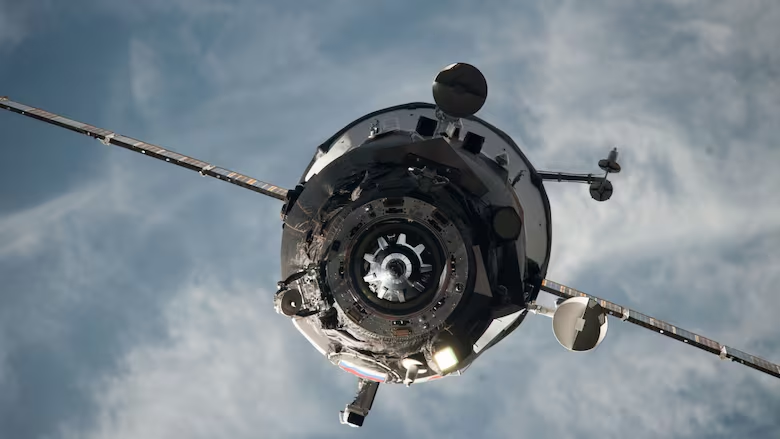Russian supply ship on way to ISS malfunctions, breaks up over Siberia
Was scheduled to deliver 2.5 tonnes of fuel, water, food and other supplies

An unmanned Russian cargo spaceship heading to the International Space Station broke up in the atmosphere over Siberia on Thursday due to an unspecified malfunction, the Russian space agency said.
The Progress MS-04 cargo craft was lost at an altitude of 190 kilometres over the remote Russian Tuva region in Siberia that borders Mongolia, Roscosmos said in a statement. It said most of space ship's debris burned up as it entered the atmosphere but some debris fell to Earth over what it called an uninhabited area.
The Progress cargo ship had lifted off as scheduled at 8:51 p.m. local time from Russia's space launch complex in Baikonur, Kazakhstan, to deliver 2.5 tonnes of fuel, water, food and other supplies. It entered an orbit nine minutes later and was set to dock with the space station on Saturday.
Roscosmos said the craft was operating normally before it stopped transmitting data 383 seconds after the launch. The Russian space agency would not immediately describe the malfunction, saying its experts were looking into it.
This is the third botched launch of a Russian spacecraft in two years. A Progress cargo ship plunged into the Pacific Ocean in May 2015, and a Proton-M rocket carrying an advanced satellite broke up in the atmosphere in May 2014.
But both Roscosmos and NASA said the crash of the ship would have no impact on the operations of the orbiting space lab that is currently home to a six-member crew, including three cosmonauts from Russia, two NASA astronauts and one from the European Union.
Orbital ATK, NASA's other shipper, successfully sent up supplies to the space station in October, and a Japanese cargo space ship is scheduled to launch a full load in mid-December.
NASA supplier SpaceX, meanwhile, has been grounded since a rocket explosion in September on the launch pad at Cape Canaveral, Florida. The company hopes to resume launches in December to deliver communication satellites.
